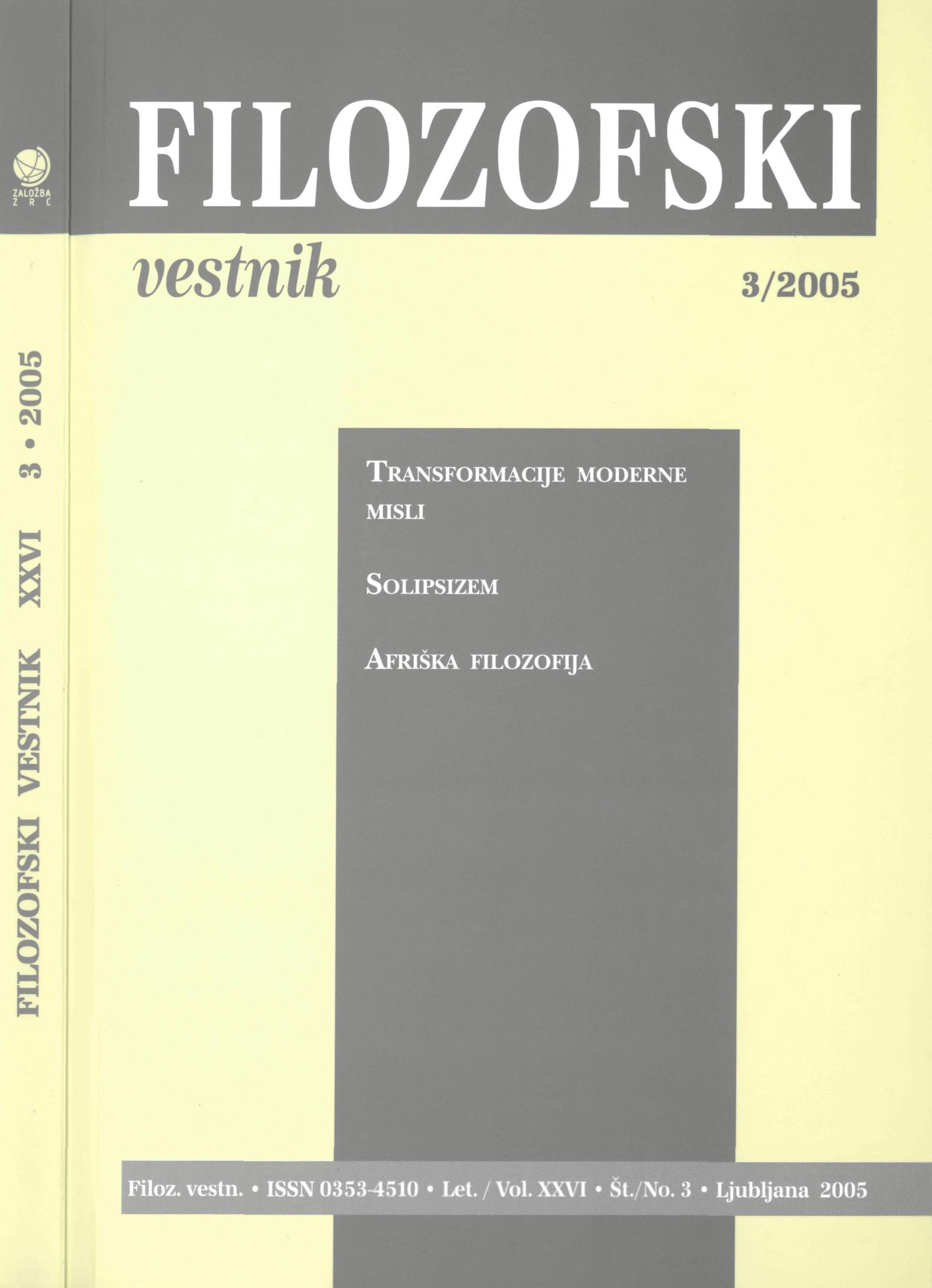Filozofija, teologija, etika: nekaj odprtih vprašanj
Ključne besede:
Kierkegaard, Hegel, možnost, etika, svoboda, dejanjePovzetek
Avtor skozi primerjavo kierkegaarda in Hegla ponazori tudi razliko med idealizmom in materializmom: za idealista situacijo, v katero smo vpleteni, izkusimo kot »odprto«, medtem ko je ista situacija videti »zaprta« s stališča dokončnosti, tj. z večnega stališča vsemogočnega in vsevednega boga, ki lahko dojema svet le kot zaprto totalnost; za materialista pa gre »odprtost« vse do konca. kierkegaardova teologija predstavlja skrajno točko idealizma, kljub vsemu pa ostaja dvoumna – le droben popravek zadošča, da dobimo pravo materialistično teorijo subjektivnosti. Umik kierkegaarda pred vrtoglavostjo svobode je prav umik v pritiske zunanje-vsiljenega prepovedujočega zakona in tako pravi Padec. Že kant je poudaril, da je potreba po zunanjem gospodarju varljiva past: človek potrebuje gospodarja zato, da pred samim seboj prikrije zagato svoje lastne težavne svobode in samoodgovornosti. zato je ključno opozoriti, da kierkegaard preskoči prvo kontrakcijo končnosti, prvi vznik sintoma, ki iz subjekta naredi stvor v pravem pomenu besede, in neposredno preide od izvornega spokoja k Prepovedi. osredotočiti bi se morali na razliko med dvema umikoma pred praznino neskončnosti: prvi je izvorna kontrakcija, ki ustvari sintom – ta predhodi Prepovedi –, medtem ko je šele drugi umik pred »vrtoglavostjo svobode« padec v pravem pomenu besede: z njim vstopamo na področje nadjaza, začaranega kroga zakona in njegove transgresije.Prenosi
Podatki o prenosih še niso na voljo.
Prenosi
Objavljeno
2016-03-05
Kako citirati
Žižek, S. (2016). Filozofija, teologija, etika: nekaj odprtih vprašanj. Filozofski Vestnik, 26(3). Pridobljeno od https://ojs.zrc-sazu.si/filozofski-vestnik/article/view/4341
Številka
Rubrike
Transformacije moderne misli
Licenca
Avtorji jamčijo, da je delo njihova avtorska stvaritev, da v njem niso kršene avtorske pravice tretjih oseb ali kake druge pravice. V primeru zahtevkov tretjih oseb se avtorji zavezujejo, da bodo varovali interese založnika ter da bodo povrnili morebitno škodo.
Podrobneje v rubriki: Prispevki





